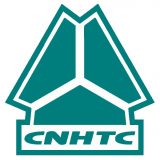Virtual Data Room allows businesses to securely share documents with other parties. It is used by numerous industries, including life science and technology banking, M&A and more.
For M&A, the most common use-case for VDRs, a virtual data room can facilitate due diligence and closing deals with less risk. This is particularly important because M&A involves large volumes of documentation and can be highly sensitive.
To lessen M&A risks to reduce M&A risks, to minimize the risk of M&A, VDR provides granular user permissions, secure spreadsheet viewers, screen-only modes, screenshot blocking and much more. This way, only authorized users can access and view the data. Security for the infrastructure is also assured with multiple backups as well as virus scanning, data center redundancy, and more.
Financial services companies manage many kinds of data which ranges from contracts to other legal documents to financial data and reports. This makes them a great candidate for the use of a VDR because they can save their documents safely and share them with third-party users quickly and easily.
Investment banks use online document sharing software for M&A transactions as well as capital raising. To maximize efficiency they require an VDR which offers a broad range of collaboration features as well as flexible pricing plans. For instance, an investment bank will require the ability to upload 5MB per second, SmartLock that allows revoking access to documents after they’ve been downloaded built-in redaction features, DocuSign integration, and much more.






